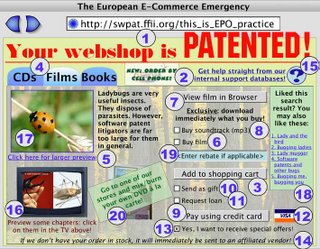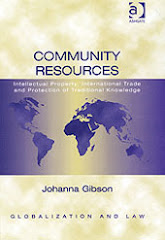
Yesterday, members of the European Parliament voted at the Brussels plenary session to approve a resolution postponing EU membership of the European Patent Litigation Agreement (EPLA). In a vote of 494 against 109, with 18 abstentions, the result was largely due to major concerns with the text of the EPLA. One motion for a resolution, submitted by Sharon Bowles (ALDE Group) and others, described the need for "significant improvements" to the text.
The Working Party on Litigation was established at the Paris Intergovernmental Conference of 1999, and mandated, among other things, to produce a draft text for a common European patent system. The sub-group of the Working Party produced the first draft of EPLA in 2004, with a revised draft submitted to the Working Party in December 2005 (to take account of the Enforcement Directive, 2004/48/EC).
Yesterday's decision postpones moves towards a European patent court, but does not mean a complete rejection of the Agreement. One of the particular sticking points was a perceived lack of democratic control over the granting of patents. During the debate held 28 September, Richard Corbett (MEP) expressed "grave doubts about the proposals for a system of patent courts that would be at arm's length both from democratic institutions and from proper judicial review." He continued, "The draft resolution of on the European Patent Litigation Agreement could, if implemented, place patent disputes in the hands of those who have a vested interest in a very wide use of patents."
Nevertheless, Members remain committed to the Community Patent as part of what Charlie McCreevy suggests is a "better, cheaper, more reliable patent system." And in a recent briefing produced by the London School of Economics and Political Science (LSE), Centre for Economic Performance (CEP), the greater productivity of the US was attributed in part to Europe's ongoing failure to create a Community patent. The CEP briefing notes that registering a patent in the EU costs 5 times more than in the US. The debate concerning patent protection in Europe continues in the context of the revitalised Lisbon Agenda and concerns for Europe's competitiveness and innovation in a global market.

Civil society groups such as the Foundation for a Free Information Infrastructure (FFII) have expressed ongoing cynicism regarding the cost and efficiency promises of the EPLA. In a press release in September, Pieter Hintjens, president of FFII said, "The EPLA means higher costs for small businesses, and increased litigation risks. More US-style litigation is not the solution. We just need a better patent office."
FFII board member, Jonas Maebe, has said "We're 80% happy with the result."



No comments:
Post a Comment